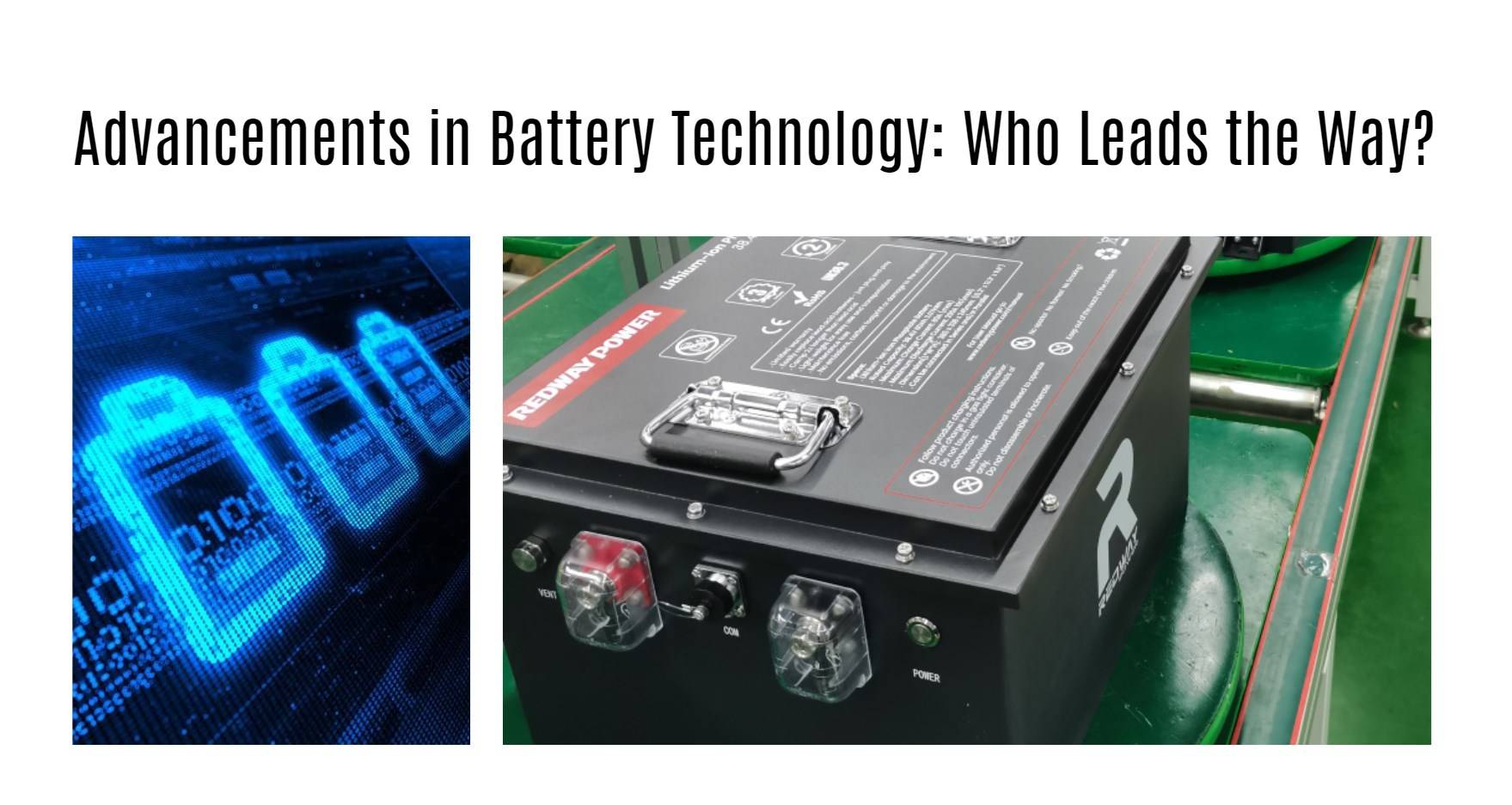The landscape of battery technology is rapidly evolving, driven by the increasing demand for efficient energy storage solutions across various sectors, particularly in electric vehicles (EVs) and renewable energy systems. This article explores the latest advancements in battery technology, the key players leading these innovations, and the implications for the future of energy storage.
What Are the Recent Advancements in Battery Technology?
Recent advancements in battery technology include significant improvements in energy density, cost reduction, safety enhancements, and the development of new materials and chemistries that promise longer lifespans and faster charging times.The most notable advancements include:
- Energy Density Improvements: Innovations in electrode materials and cell design have significantly increased the amount of energy stored per unit weight or volume, allowing for longer-lasting batteries in EVs and portable devices.
- Cost Reduction Efforts: Advances in manufacturing processes and economies of scale have driven down production costs, making batteries more affordable for consumers. Research into alternative materials is also ongoing to further reduce costs.
- Safety Enhancements: Improved battery management systems and thermal management techniques have enhanced safety by reducing risks such as thermal runaway and cell degradation.
- New Battery Technologies: Next-generation batteries like solid-state batteries and lithium-sulfur batteries are being developed to overcome limitations of current lithium-ion technologies, offering higher capacities and improved safety profiles.
How Are Companies Innovating in Battery Technology?
Companies are innovating through research partnerships, investment in new materials, and development of next-generation battery technologies that promise to revolutionize energy storage.Leading companies are focusing on several innovative approaches:
- Silicon Anodes: Companies like Sila Nanotechnologies are replacing traditional graphite anodes with silicon to enhance energy density.
- Solid-State Batteries: Major automotive manufacturers are investing heavily in solid-state technology, which replaces liquid electrolytes with solid materials to improve safety and performance. Toyota aims to commercialize solid-state batteries by 2027.
- Sodium-Ion Batteries: These batteries utilize sodium instead of lithium, offering a more abundant alternative that could alleviate supply chain issues associated with lithium mining.
- Partnerships for Development: Collaborations between tech companies and automotive firms are accelerating battery innovation. For example, Mercedes Benz is working with IBM Research on new battery materials sourced from seawater.
Which New Materials Are Transforming Battery Technology?
New materials such as nanostructured electrodes, organosilicon electrolytes, and carbon nanotubes are being explored to enhance battery performance and safety.Key materials transforming battery technology include:
- NanoBolt Lithium Tungsten Batteries: These batteries utilize carbon nanotubes to increase surface area for ion attachment during charging cycles, resulting in faster recharge times.
- Organosilicon Electrolytes: Developed to reduce flammability risks associated with traditional liquid electrolytes, these new solvents improve safety profiles for lithium-ion batteries.
- Gold Nanowire Gel Electrolytes: Research shows that these gels can withstand numerous charge cycles without degrading, offering a promising alternative to conventional battery designs.
What Are the Challenges Facing Battery Technology Development?
Despite advancements, challenges such as resource availability, environmental concerns, and production scalability hinder the widespread adoption of new battery technologies.The main challenges include:
- Resource Availability: The reliance on scarce materials like lithium, cobalt, and nickel raises concerns about long-term sustainability and ethical sourcing practices. The geopolitical risks associated with mining these resources also pose challenges for manufacturers.
- Environmental Concerns: While batteries provide significant benefits over fossil fuels, their production and disposal can lead to environmental degradation. Sustainable practices are needed to mitigate these impacts.
- Scaling Up Production: As demand for batteries surges, scaling up production while maintaining quality control remains a logistical hurdle for manufacturers.
Buy Wholesale Battery Tips
When considering wholesale battery purchases for businesses or projects:
- Research Suppliers Thoroughly: Look for reputable suppliers with a track record of quality products.
- Understand Specifications: Ensure that the batteries meet your specific requirements regarding capacity, size, and chemistry.
- Negotiate Pricing: Bulk purchases often allow for negotiation on pricing; don’t hesitate to ask for discounts.
- Check Warranty Policies: A good warranty can save costs on replacements or repairs.
- Consider Shipping Costs: Factor in shipping when calculating total costs; sometimes local suppliers can offer better deals.
Industrial News
Recent developments in battery technology have made headlines:
- Toyota’s Solid-State Battery Breakthrough: Toyota aims to launch a solid-state battery with a 745-mile range by 2027-2028. This development could significantly impact EV performance and consumer adoption rates.
- Sodium-Ion Battery Advancements: Researchers at Pacific Northwest National Laboratory announced a breakthrough in sodium-ion technology that could provide a cost-effective alternative to lithium-ion batteries.
Redway Expert Views
Experts emphasize the importance of continued investment in research and development within the battery sector:”The transition towards sustainable energy solutions hinges on our ability to innovate within battery technology,” says Dr. Jane Smith from Redway Energy Solutions.”Emerging technologies like solid-state batteries represent a pivotal shift that could redefine energy storage,” notes Mark Johnson, a leading industry analyst.
FAQs
- What is the most promising new battery technology?
Solid-state batteries are considered one of the most promising technologies due to their potential for higher energy density and improved safety compared to traditional lithium-ion batteries. - How do lithium-ion batteries compare to newer technologies?
Lithium-ion batteries currently dominate the market but face limitations such as resource scarcity and safety concerns. Newer technologies like sodium-ion or solid-state batteries aim to address these issues while improving performance. - What are the environmental impacts of battery production?
Battery production can lead to habitat destruction, water pollution, and carbon emissions. Sustainable sourcing practices and recycling initiatives are essential to mitigate these impacts. - How can businesses benefit from wholesale battery purchases?
Buying wholesale allows businesses to reduce costs significantly while ensuring they have a steady supply of necessary components for operations or projects. - What role do partnerships play in advancing battery technology?
Collaborations between automotive manufacturers and tech companies foster innovation by pooling resources and expertise, accelerating the development of next-generation battery solutions.



